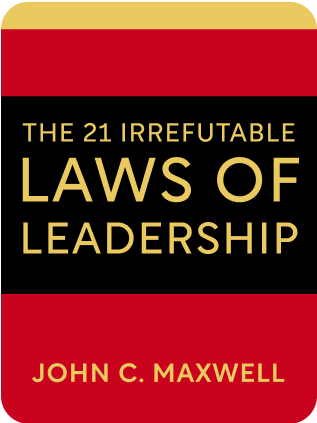

This article is an excerpt from the Shortform book guide to "The 21 Irrefutable Laws Of Leadership" by John C. Maxwell. Shortform has the world's best summaries and analyses of books you should be reading.
Like this article? Sign up for a free trial here .
What is the Law of Timing? Why is timing so crucial in leadership?
The Law of Timing is the nineteenth of John C. Maxwell’s 21 laws of leadership. This law is about doing the right thing at the right time. However, it’s not so easy in practice. To effectively implement the Law of Timing, you need understanding, maturity, confidence, decisiveness, experience, intuition, and preparation.
Keep reading for more about John Maxwell’s Law of Timing.
John C. Maxwell’s Law #19: The Law of Timing
Good leaders not only need to make good decisions, they need to make these decisions at an appropriate time. To effectively implement the Law of Timing, you must keep in mind the other laws of leadership, such as that leaders must plan and pay attention to intangibles; and embody the desirable characteristics of a leader such as competence and confidence.
There are four possible case studies to consider:
- Wrong action at wrong time. In this case, everything goes wrong, and success is not an option.
- For example, you come across a car accident. Instead of immediately calling 911, you run over to help even though you don’t have first aid training.
- Right action at wrong time. Even if you choose the right course of action, if your timing is wrong, you may not succeed.
- For example, John C. Maxwell tried to start a group program at Skyline. The group program was a good idea, but the timing was off because he didn’t have enough leaders to run the groups.
- Wrong action at right time. Pitfall alert! Entrepreneurs are particularly susceptible to this one.
- For example, John C. Maxwell started a radio program. The time was right—it was the mid-1990s there was a need for such programs. But Maxwell decided to make the program self-supporting, rather than ask for donations, and the show never broke even.
- Right action at right time. This is the goal. When your actions and timing are both right, you nearly always succeed.
- For example, Winston Churchill is widely recognized as a good leader because he was so good at applying this law.
Example of Failed Application of the Law: Hurricane Katrina
The Mayor of New Orleans failed to act at the right time, and disaster struck. On August 26, 2005, the National Hurricane Center predicted that tropical storm Katrina would make landfall on August 29, 60 miles southeast of New Orleans. On August 27, many of Louisiana’s parish leaders ordered mandatory evacuation. It wasn’t until the evening of August 28 that New Orleans Mayor announced a voluntary evacuation, and not until 9 a.m. the next morning—fewer than 24 hours before the hurricane struck land—that the order became mandatory. It was too late. Many people couldn’t get out of town on such short notice. Nagin told people to shelter at the Superdome, but told them to bring their own provisions because he hadn’t planned far enough ahead to provide any.
Leaders at other levels of government botching the timing too. It took days to get the federal government organized and the Superdome wasn’t evacuated until September 4. More than 1,836 people died, 86% of whom were from Louisiana, and 80% of those were from the Orleans and St. Bernard parishes.
Not all of Nagin’s decisions were wrong—evacuating people was a good call—but the timing of his decisions was so abysmal that the outcome was a disaster anyway.

———End of Preview———
Like what you just read? Read the rest of the world's best book summary and analysis of John C. Maxwell's "The 21 Irrefutable Laws Of Leadership" at Shortform .
Here's what you'll find in our full The 21 Irrefutable Laws Of Leadership summary :
- Why working with people is the only way to do meaningful work
- How to become the kind of person that can get things done
- Why you don't need to be good at all the laws of leadership to be a good leader






